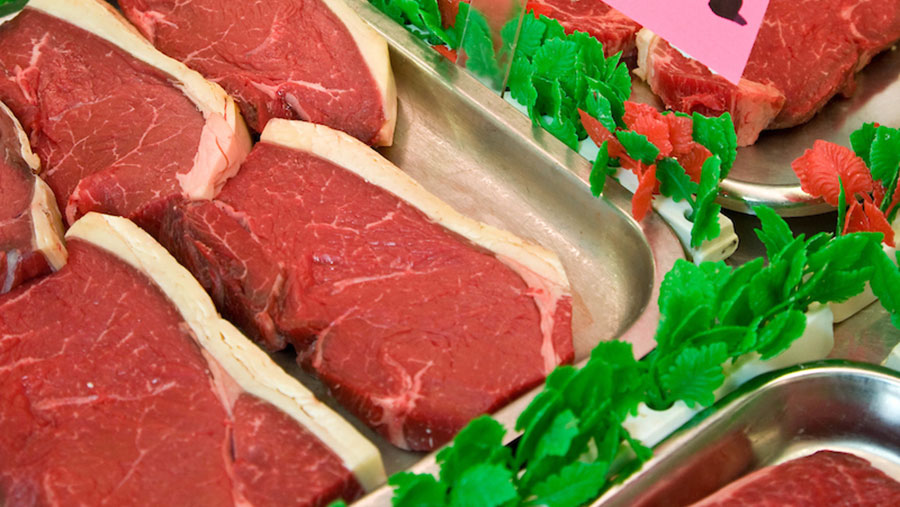New anti-meat report lambasted by AHDB
 © Tim Scrivener
© Tim Scrivener Red meat and dairy products offer a sustainable and nutritious food source for UK consumers and should not be cut from diets, the AHDB insists.
The comments have been made in response to a new report from the EAT-Lancet Commission – a consortium of 37 international experts funded by the Welcome Trust. They claim that global consumption of red meat and sugar needs to decrease by 50% to achieve a sustainable, healthy diet.
See also: Meat eaters or vegetarians: Who has the better arguments?
According to the report, published in The Lancet on Thursday (17 January), current food production systems are threatening both human health and the environment.
“Transformation of the global food system is urgently needed as more than 3 billion people are malnourished, and food production is exceeding planetary boundaries – driving climate change, biodiversity loss, pollution and unsustainable changes in water and land use,” said a statement.
The academics go on to recommend a diet low in animal products and high in nuts, fruits, vegetables and legumes which, combined with improved food production and lower food waste, will lead to better health and reduced environmental damage.
Specifically, the report suggests a typical daily diet should include just 7g of beef or lamb, 7g of pork, 29g of poultry, 250g of dairy and 13g of eggs.
EAT-Lancet Commission five key strategies
- Encourage people to choose healthy diets and buy from sustainable sources
- Refocus agriculture away from producing high-volume crops to nutrient-rich crops
- Seek the “sustainable intensification” of agriculture
- Preserve natural ecosystems
- Halve levels of food waste
‘Flawed thinking’
But the report has been dismissed by AHDB Beef and Lamb as “another example of well-intentioned, but potentially flawed thinking on how we reduce our impact on the environment”.
Will Jackson, AHDB strategy director for beef and lamb, believes dairy and red meat production is “part of the solution”.
“Red meat contains an efficient package of essential nutrients important for the body,” he said. “For this reason government guidelines suggest we should have 70g of red meat a day, though average population intake in the UK is currently below this figure.”
Mr Jackson also questioned the full environmental effect of moving to a largely plant-based diet in the UK.
“Meeting the nutritional needs of a growing UK population from plant-based proteins would likely rely much more heavily on imported food, which may be produced to lower environmental standards,” he said.
Natural resources
Conversely, red meat produced in the UK was sustainable, making best use of natural resources and requiring very few additional inputs.
“In addition, grazing cattle and sheep manage permanent pasture as an effective carbon sink and make use of massive swathes of agricultural land that cannot be used for growing other foods.”
Prof Nigel Scollan, director of the Institute for Global Food Security at Queen’s University, Belfast, said the EAT Lancet Commission merely reinforced the fact that an omnivorous diet was optimal.
“Encouraging people to eat less red meat and dairy will have little impact on the environment and is potentially damaging to people’s health, with many missing out on vital nutrients such as zinc and iron,” he said.
The Sustainable Food Trust agreed that prioritising reductions in beef and lamb consumption was misguided, adding that grazing animals needed to be reintroduced into many crop rotations to mitigate soil degradation and biodiversity loss.
“But the failure to make a stronger recommendation in relation to reducing poultrymeat consumption is misguided,” it said. “We recognise that meat consumption overall needs to be reduced, but poultry are in direct competition with humans for grain.”
